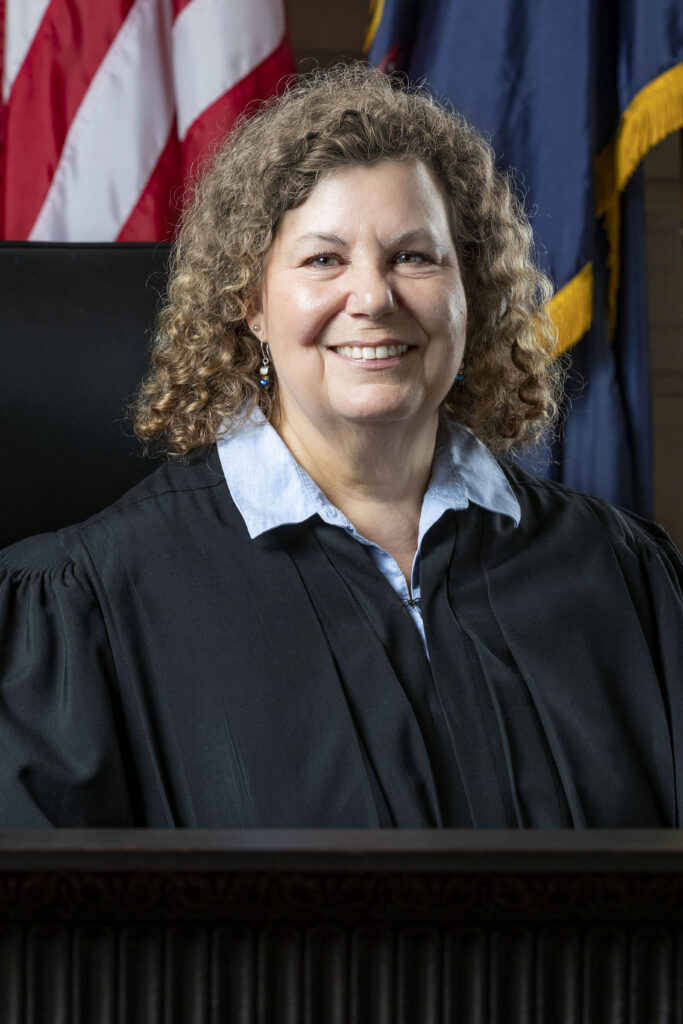
Chief justice seeks more judges, clerks and judicial marshals to clear growing backlog
By Judy Harrison, Bangor Daily News Staff
Maine Supreme Judicial Court Chief Justice Valerie Stanfill asked lawmakers on March 23 to support funding for an additional four judges, clerks and judicial marshals to help clear a backlog of cases that continues to grow despite the end of pandemic-imposed restrictions.
In her first in-person address to a joint session of the Legislature, Stanfill said that not only have pending cases increased in number, they are taking longer to resolve due, in part, to the increased reliance on recorded evidence such as security videos and cell phone recordings.
Stanfill’s report was the State of the Judiciary address given to lawmakers annually.

The backlog in criminal cases is 65 percent higher than it was pre-pandemic, she said. While the backlog of civil violations is down about 35 percent, misdemeanors are up 60 percent and pending felony cases are up about 87 percent.
But the backlog and the time it takes for trial dates to be set were increasing before the coronavirus struck, according to Stanfill.
“The pandemic was the tipping point that unmasked the reality that even before 2020, the courts and judicial system were straining to keep up with the demand of cases,” she said. “We are still struggling to provide appropriate security leading to courthouse closures.”
Gov. Janet Mills included the new positions in her proposed budget.
The chief justice also is seeking a pay increase for Maine judges, who are the lowest paid in the country. If the increase is approved, they still would be the lowest paid in New England.
A 2020 study on compensation found that Maine judges were paid at least $20,000 less than judges in other New England States. District Court and Superior Court judges were paid $133,286 in 2020. State law allows for a 3 percent cost-of-living increase per year.
Stanfill’s speech did not include the cost of these initiatives.
The chief justice said that the rollout of the e-filing system to move Maine from an all paper document system to an electronic one has encountered more “hitches” than anticipated.
It was supposed to have been implemented statewide by the end of last year but the violations bureau, the Business and Consumer Court in Portland and the civil and family docket in Bangor are the only courts using the system.
Later this year, the family and civil dockets in the Lewiston District Court and Androscoggin Superior Court in Auburn will be brought online.
Stanfill listed some successes in the court system including an initiative that started in Lewiston to hire court interns who were born in Somalia.
“For too long people who have walked into our courtrooms have felt excluded because they look different than [the people in] the portraits on the walls,” she said. “We are working hard at increasing diversity and inclusion and decreasing implicit bias in the judicial branch through educational programing and outreach.”
Stanfill also touted expanding the use of mental health dockets due to a dramatic increase in court-ordered mental health exams, which were three times higher in 2022 than in 2014. In addition, she said her department has improved public court access using Zoom and hybrid appearances, made document preparation easier for self-represented cases and improved online court filing, including for people seeking protection from abuse or harassment orders.
Stanfill was sworn in as chief justice in June 2021 by Mills. Stanfill replaced Leigh I. Saufley, who stepped down as chief justice in April 2020 to become dean of the University of Maine School of Law, after nearly 20 years as head of Maine’s judiciary.